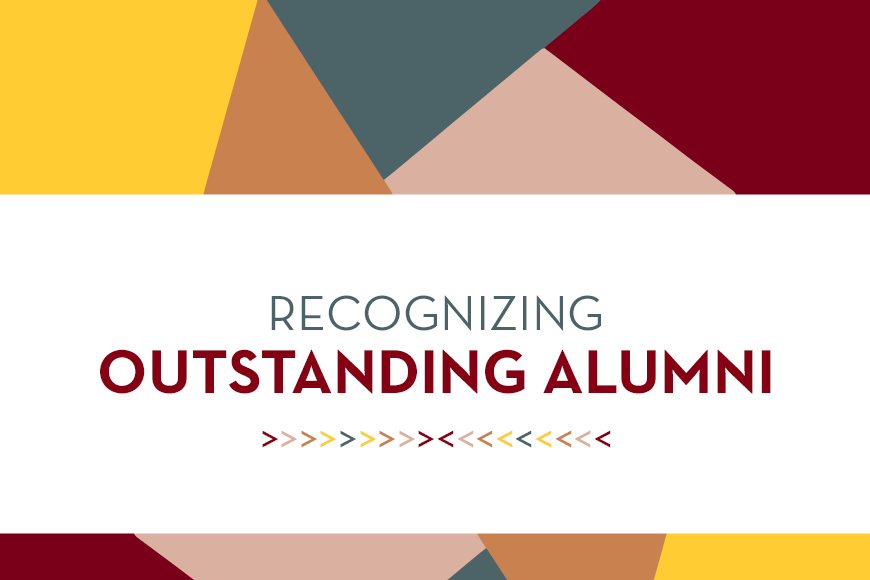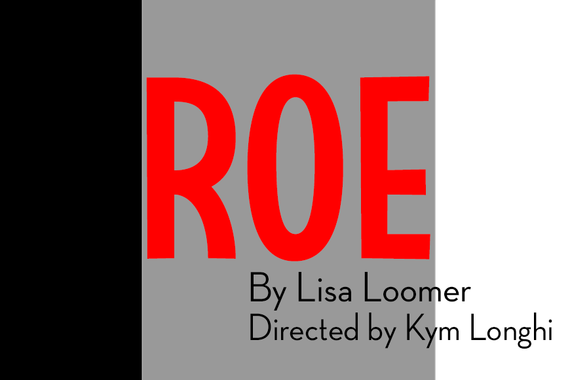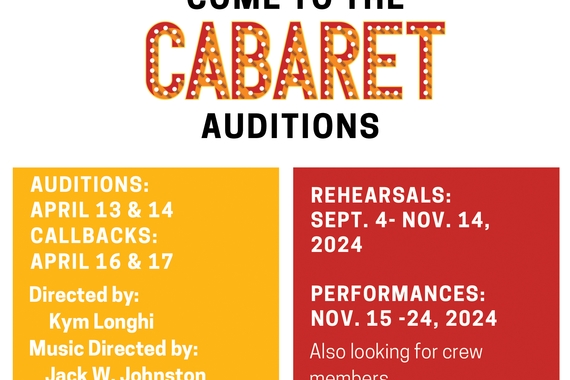Allison Vincent (BA ‘10, English and theatre arts), Alumni of Notable Achievement Award 2022
Universally admired actor, teacher, and collaborator: Allison works at South High School in Minneapolis, empowering her students to see value in their stories, perspectives, and ideas. In addition to her teaching career, she is a gifted performer, sharing her brilliance onstage with the Transatlantic Love Affair theater ensemble. We had an opportunity to talk to Allison about her work and what inspires her.
What led you to teach at the high school level after graduating?
I've known I wanted to be a teacher since 9th grade. I love helping people express themselves. Enabling students or actors to find joy in analyzing literature, being able to make and defend their points, and understanding how to critically examine what is being presented as research in all forms of media consumption. That, and I just don't have the patience or calm to be an elementary teacher. Those people are truly saints who walk among us. As a high schooler, my English teachers saw what they thought were the makings of a future teacher and they went out of their way to encourage me and provide me with opportunities to make that assumption a reality. They let me shadow faculty meetings and curriculum planning sessions, allowed me to TA in underclassmen courses, and steered me toward future teacher scholarships. I have always had a strong connection to my educators, including my incredible professors in UMTAD, the English Department, and CEHD, and I think those relationships are a large reason I remain in the classroom to this day.
How did your Theatre Arts degree prepare you to be a teacher?
I believe that theatre teaches students how to be empathetic, communicative people. Those "soft skills" I learned in my performance classes have been the most useful, and the ones I return to most often, in my career. During my time in UMTAD, I participated in "The Washburn Project" with Luverne Seifert where we got to be TAs in Crystal Spring's theatre class at Washburn High School. That experience of not just observing, but engaging with high school students working on their own performances was a wonderful reassurance that I was on the right path. It also drove home the idea that theatre is about doing. We don't just sit around and talk at the table. At some point, you have to get up and dive into the action of the thing.
I also think the devised pathway I followed as a BA has been the single most impactful decision I've ever made for my career as both a teacher and as a theatre maker. Learning how to make something, how to be a good collaborator, how to work on a deadline, how to research and write, how to read an audience, and how to "figure it out with what we have," gave me the tools to carve out a career for myself in the Twin Cities theatre scene. But, being able to create out of thin air with little to no resources, is an unfortunate reality for many public school teachers. Knowing my audience, playing to them, and building fast working relationships with people are all carry overs from my time in the BA devised track that bolstered my teaching practice.
Finally, the connections I made with fellow theatre students, my professors, staff, and guest artists have all led me to the point I am at today as a teacher and theatre maker. The professors in UMTAD are invaluable, brilliant, and generous with their artistry. I have nothing but admiration and appreciation for everything that they did for me in my time at the U and to this day. Lisa Channer still writes me recommendation letters. I'm closing a tour with Luverne Seifert and Sonja Kuftinec that has expanded my understanding of theatre as public discourse. Joel Sass is directing my Naked Stages show and pushing me to be a more honest and innovative performer. I met my long time collaborator Jon Fergusson by doing the Iron 10 workshop series one year and we've been working together for the last twelve. My point here is that theatre people invest in theatre people. We must. It is simply the most human field of study there is. I think the same is true for educators. Whether I'm working with professional actors, high school students, or undergrads straining over their first big paper, they need to know that I'm invested in their success. I'm rooting for them. We are in this together. We're collaborators.
How do English & Theatre Arts complement or conflict with each other in your teaching?
I don't think they conflict at all. For me the two have always supplemented each other in the most beautiful ways. My English degree made writing intensive courses like Theatre History and Dramatic Lit. much more manageable and familiar, and my theatre degree strengthened my voice as a scholar in class and as a writer. I am incredibly proud to use both degrees everyday in classrooms, on stage, as a director, as a writer, and as a consumer of media. I think the two are siblings, intrinsically connected. A firm understanding of one makes the exploration of the other more enjoyable.
How do you transform your students' stories, perspectives, and ideas into theatre projects?
With my new career in the Writing Studies Department, things are a bit different because of the nature of the course, but I'm hoping to steer some students towards performative modes of expression in their researched argument project. While I was working for Minneapolis Public Schools, I tried to incorporate either a quarter of theatre or projects that offered performance as an option of expression each year. I loved teaching theatre with my 11th and 12th grade Partnership students. The course was designed for students who had struggled with English classes and needed to recoup some credits while also making progress towards graduation. The initial announcement that our new unit was focused on theatre and live performance was typically met with groans. Most students immediately envision White men in tights reciting Shakespeare in RP, and, to be fair, sometimes that's what it is. But, then we would read August Wilson, or Ntozake Shange, or John Lequizamo's solo work and suddenly my most reluctant readers would say, "Don't let anyone else read my part, miss!"
I also had the great fortune of getting to collaborate with Project Success, an incredible organization that brings future planning, theatre arts, and college visits to students in MPS English classrooms. Project Success took care of our bus and ticket fees and would help me take students to shows across the Twin Cities. Occasionally, they would get to come see me in a show and ask me questions on stage after the performance.
I'm also a teaching artist for the Guthrie and a freelance instructor for clown, physical comedy, devised theatre, ensemble work, and physical theatre. In these roles, I get to go into a classroom, or work a production, to help actors explore various modes of storytelling. It is always such a delight to work with the incredible talent we have in the Twin Cities. I always walk away from these classes and experiences with a better understanding of my craft, new connections, and a reinvigoration for the art form.
How do your students inspire you? How do you hope to inspire them?
I'm constantly inspired by my student's perspectives on their own writing. We're all so hard on ourselves. Some of my best writers act like they would rather die than hit the submit button. But, part of my job is to convince them to believe in the drafting process. This exercise has enabled me to be braver, more confident, and a stronger collaborator in my own work. I have to practice what I preach and embrace failure, otherwise I wouldn't be a very good teacher. I hope I inspire students to be life long learners, to admit when they don't know something and have the tools to find a reputable answer. I want students to create, even if it seems like no one else is listening. Just do it. Just make it! Then, once you have the thing, worry about finding an audience. Don't be afraid of feedback. Don't be afraid to put yourself out there. Swing big. Say, "why not?" You might get yourself into trouble, but hopefully it will be good trouble. At least your life will be interesting! And who knows? Maybe it will work, and you'll end up living your dream even if it is something you secretly think you have no business doing.


